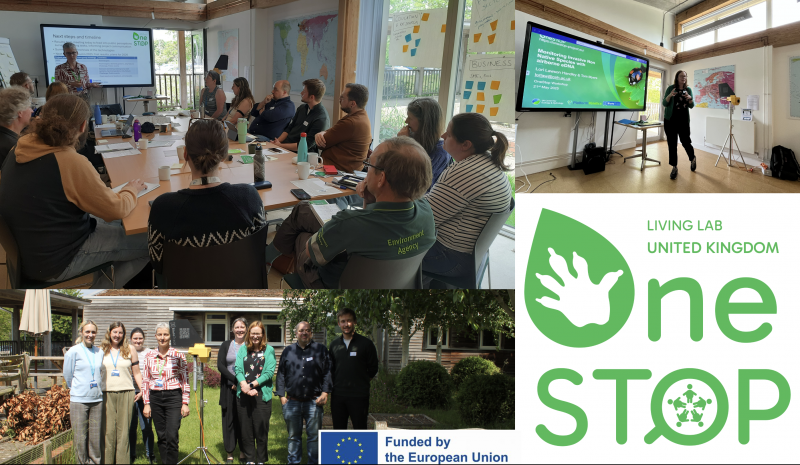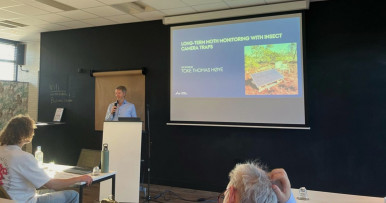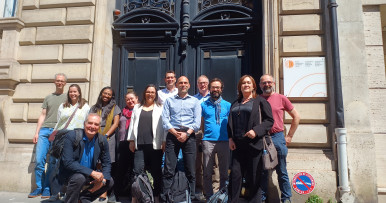OneSTOP contributes to the Invasive Species Week 2025 with the launch of our UK Living Lab
Invasive Species Week 2025 marked another year of collaboration, awareness, and community-led action against invasive non-native species. Held across England, Guernsey, Ireland, the Isle of Man, Jersey, Northern Ireland, Scotland, and Wales, the week brought together 174 organisations. It hosted 78 events — a significant demonstration of the region-wide commitment to tackling invasive threats to biodiversity. As part of the Invasive Species Week (12–18 May 2025), OneSTOP joined local efforts to raise awareness and explore innovative responses to biological invasions.
We launched our UK Living Lab with a workshop at Coventry University’s Centre for Agroecology, Water and Resilience. Bringing together local authorities, researchers, environmental groups and utility providers, the event introduced the Living Lab model and marked the start of a collaborative process to address invasive species in the UK.
Participants explored practical challenges and opportunities for action, from early detection to long-term monitoring. Technologies presented included air eDNA samplers, AI-connected light traps and vehicle-mounted camera systems. Working together, attendees prioritised species of concern and identified key sites for testing these tools in real-world settings. Plans also include citizen science activities focused on gardens as common entry points for invasive species.
The workshop featured presentations by representatives from the UK Centre for Ecology & Hydrology (UKCEH), Platform Kinetics, Biota Trace and Aarhus University, showcasing innovative approaches to tackling invasives.
As part of the Invasive Species Week 2025 activities, Prof Helen Roy also contributed insights on the spread and impact of invasive species in a new podcast and video released during the campaign week.
Through these activities, OneSTOP is proud to support the goals of the Invasive Species Week—promoting awareness, collaboration and inclusive strategies for managing biological invasions.



